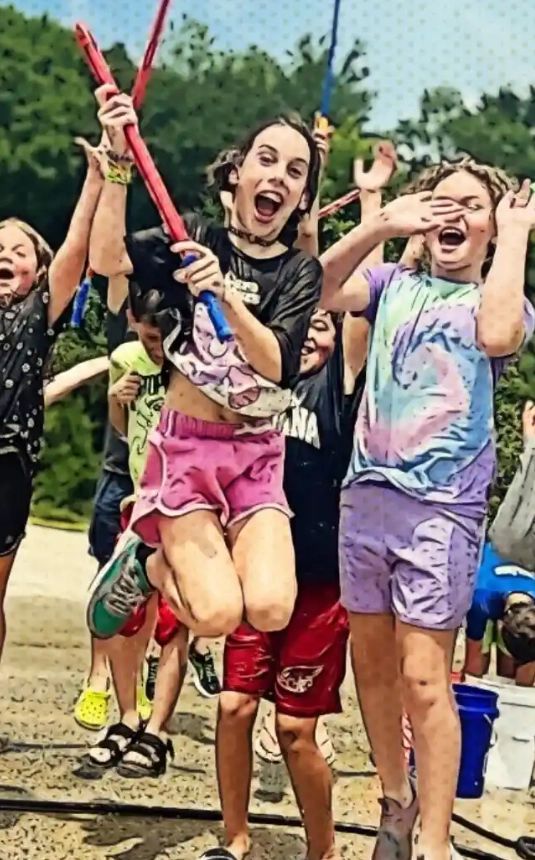When kids work together to build a fort or solve a puzzle, something magical happens. They discover that two heads are better than one! These moments of collaboration aren’t just fun — they’re building blocks for essential life skills that will serve children throughout their lives.
Incorporating teamwork and team-building events into kids’ lives serves as a nursery where vital social skills bloom — skills like communication, empathy, problem-solving, and many others. Let’s embark on exploring how we can infuse child-friendly environments with the spirit of camaraderie!
The Importance of Teamwork for Kids
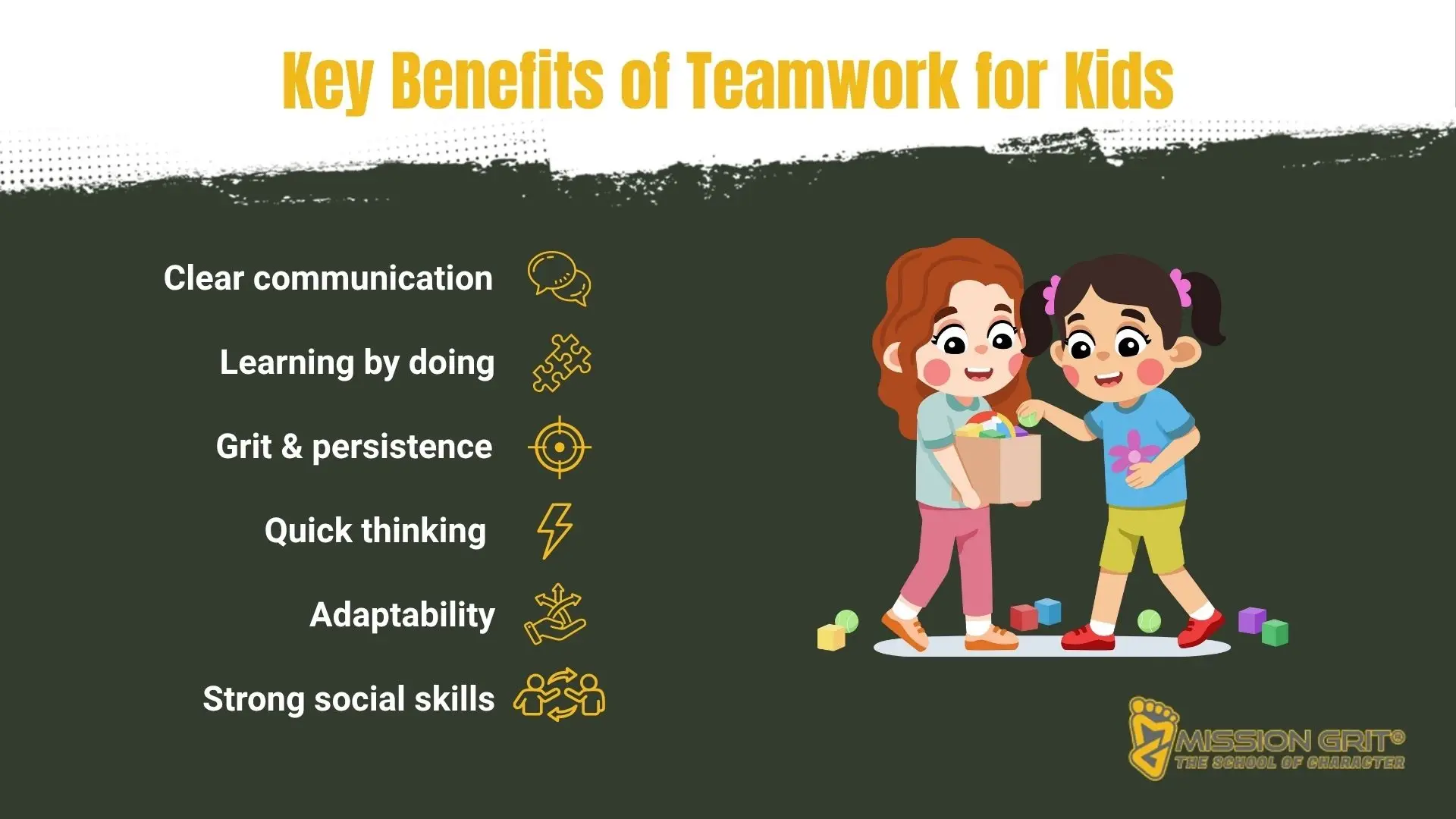
So what is teamwork for kids, exactly? It’s the art of working together toward a common goal while learning to value each person’s unique contributions. When children participate in team activities, they discover that success often comes not from individual effort alone, but instead from the magic of collaboration.
The benefits of teamwork for kids extend far beyond simply completing tasks. Here’s how teamwork transforms young learners into confident, capable individuals:
- Clear communication skills: Kids learn to share their thoughts clearly and listen with purpose. In a team setting, they quickly see that strong communication is what turns confusion into success.
- Evidence-based learning: Children gain awareness of how their actions affect team outcomes. They learn by doing — seeing firsthand how their effort shapes the group’s success.
- Follow-through and persistence: Teamwork teaches kids to stay the course. Sticking with a task until the end builds grit, patience, and a can-do attitude that lasts a lifetime.
- Quick thinking: In fast-moving team activities, kids learn to think quickly and adjust on the fly. It’s great training for real-life problem-solving and flexibility.
- Enhanced adaptability: When plans shift, kids discover how to regroup and refocus without missing a beat. Learning to bounce back is a key life skill they’ll use forever.
- Elevated social skills: Teamwork sharpens more than just manners; it helps kids read social cues, connect with peers, and build strong, respectful relationships.
Bearing these valuable outgrowths in mind demonstrates why parents, educators, coaches — indeed anyone entrusted with nurturing young ones — have an essential role in facilitating experiences that foreground ‘us’, rather than ‘me’.
Learning Teamwork in School
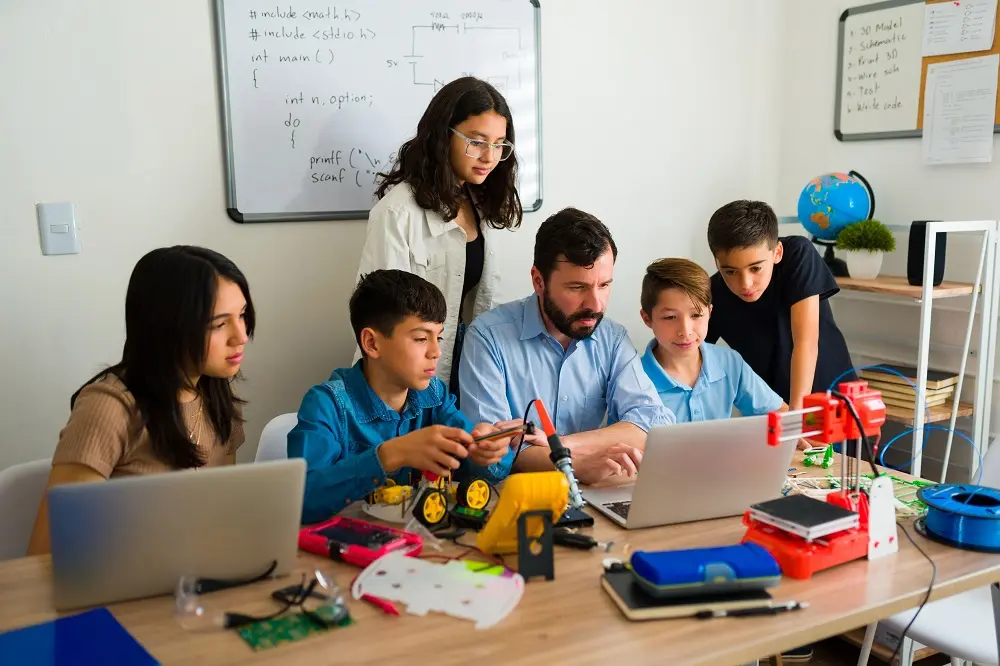
Schools primarily focus on teaching academic subjects that prepare children for future careers. While this foundation is essential, traditional classrooms aren’t always equipped to teach effective collaboration or group performance.
Still, many forward-thinking schools recognize the importance of teamwork for kids and actively find ways to nurture these essential life skills, knowing that strong teamwork skills can enhance both academic performance and social development. Here’s how schools work to improve teamwork abilities:
- Specialized program partnerships: Forward-thinking schools hire innovative companies like Mission Grit to deliver expert-led team-building activities that go beyond what classrooms typically offer.
- Group games and activities: Structured play and educational games create natural opportunities for children to practice team-building activities in supportive environments.
- School event planning: Student committees organize activities like fundraisers and assemblies, learning to coordinate efforts and manage group responsibilities.
- Drama and music ensembles: Performance groups teach children to coordinate with others, support each other’s roles, and work toward unified artistic goals.
Through these teamwork activities, students develop critical thinking skills, improve their ability to communicate effectively, and learn to navigate complex social dynamics. They revolve around a collaborative spirit fostered in school settings to help children understand that diverse perspectives strengthen team outcomes and create more innovative solutions to challenges.
Learning Teamwork in Sports
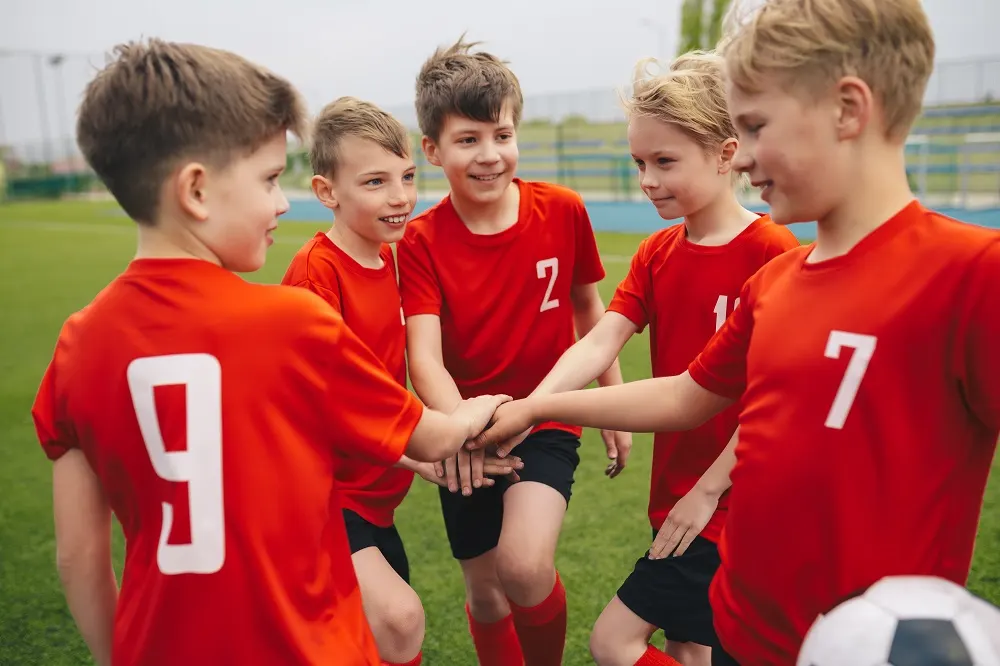
Sports are an incredible platform for developing teamwork skills, focusing on individual growth within the team context rather than simply winning at all costs. When children participate in team sports, they discover that personal improvement and team success go hand in hand.
For example, in soccer, players must coordinate to move the ball. A defender, a midfielder, and a striker all contribute differently, yet none can succeed without the others.
Sports teach teamwork so effectively because they naturally incorporate several key elements:
- Role interdependence: Each team member has a specific and unique function, and everyone must fulfill their responsibilities for the group to succeed.
- Shared goals: Teams work toward common objectives, teaching children that individual success means nothing without collective achievement.
- Real-time communication: Sports demand instant, clear communication under pressure, developing skills that transfer to all areas of life.
- Trust building: Athletes learn to rely on teammates, developing the confidence to depend on others and be dependable themselves.
- Conflict resolution: Sports naturally create situations where children must work through disagreements and find solutions that benefit the entire team.
When your child helps plan a play, defends a goal, or cheers for a teammate, they’re learning to communicate, adapt, and collaborate — all while having fun. Therefore, it seems unequivocal that learning through sports stands tall as an indispensable vault offering games to teach teamwork.
Learning Teamwork Outside of School and Sports

While the conventional settings (at school or in sports) play pivotal roles, learning teamwork goes beyond these limits. Remember that a fundamental element of growth is mastering how to coexist and collaborate with others harmoniously, even in less structured environments.
Family Activities
Family experiences are the perfect, low-pressure opportunity for children to practice teamwork skills. Camping trips, visits to amusement parks, and even simple household projects create natural team environments where kids learn through observation and participation.
During a family outing, sharing responsibilities such as packing picnic baskets can be an excellent starting point. More complex chores like planning the route or deciding the itinerary can teach children about negotiation and compromise within a team setup. These small yet significant occasions have a tremendous impact on a child’s ability to comprehend and embrace the essence of collaboration more naturally.
Community Activities and Volunteering
Community involvement is another excellent avenue for developing teamwork skills. When children participate in neighborhood clean-up projects, local fundraisers, or volunteer activities, they learn to work with people outside their immediate circle. As a result, kids can learn that teamwork extends beyond their usual social groups and helps build stronger communities.
Specialized Teamwork Programs
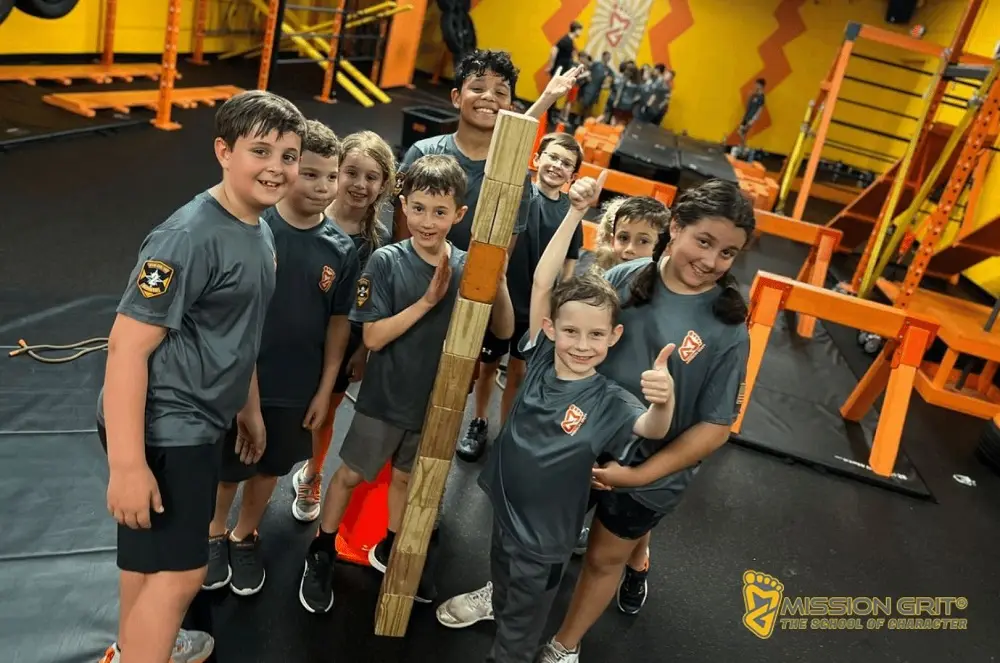
Some of the most effective teamwork development happens through specialized programs intentionally designed to help kids build essential life skills like communication, collaboration, and problem-solving in a fun, structured environment.
At Mission Grit, we believe that teamwork is best learned through action, not lectures. That’s why our programs are built around our high-impact S.P.I.R.I.T. Method, our unique and proven philosophy designed to develop strong, confident, and capable young teammates.
- S — science: Kids explore real-world physics and engineering through interactive group challenges.
- P — problem-solving: Every session builds critical thinking through obstacle courses and teamwork puzzles.
- I — interactive: Hands-on learning and immediate feedback keep kids curious and engaged.
- R — respect: We cultivate discipline, empathy, kindness, and accountability.
- I — in motion: Our dynamic courses keep kids active, focused, and having fun.
- T — teamwork: Children learn to trust, communicate, and succeed together in a supportive environment.
Our team-building events and classes include obstacle courses and group challenges designed to leave a lasting impact. It’s high-energy, growth-focused, and unforgettable — for kids and teams alike. Our goal is to ensure your child leaves feeling more confident in their physical and mental capabilities.
How to Teach Kids Teamwork: 5 Simple Strategies
Teaching kids teamwork requires intentional effort and the right approach. Parents and educators can use various strategies to help children develop these crucial skills, but success comes from understanding how young learners best absorb and practice collaborative behaviors. Here’s what we recommend.
- Start with clear expectations: How can children practice teamwork before understanding what it looks like? Explain concepts like sharing ideas, listening to others, and supporting teammates through both successes and challenges.
- Choose age-appropriate activities: Both younger and older kids can benefit from obstacle courses, with activities tailored to their skill level and teamwork needs.
- Model collaborative behavior: Children learn best through observation. When adults demonstrate effective communication, problem-solving, and mutual support, kids absorb these behaviors and begin incorporating them into their interactions.
- Celebrate team achievements: Recognition reinforces positive behaviors. When you acknowledge how well a group worked together, children understand that the process matters as much as the results.
- Create diverse groups: Mixing children of different ages, abilities, and backgrounds teaches kids to appreciate various perspectives and adapt their communication styles to work with different teammates.
Applying these strategies consistently helps young learners develop the confidence and skills needed to thrive in any team environment they encounter.
Unlock Your Child’s Collaborative Potential with Mission Grit
The benefits of teamwork for kids extend far beyond childhood, creating a foundation for success in relationships, academics, and future careers. When children learn to collaborate effectively, they develop self-confidence, communication abilities, and problem-solving skills that serve them throughout their lives.
At Mission Grit, we’re proud to create experiences where teamwork skills develop naturally through engaging, challenge-based activities. Our unique array of programs combines physical adventure with character development, helping children discover the joy and power of working together toward common goals. Contact us if you’re ready to give your child essential life skills in a fun and meaningful way!



